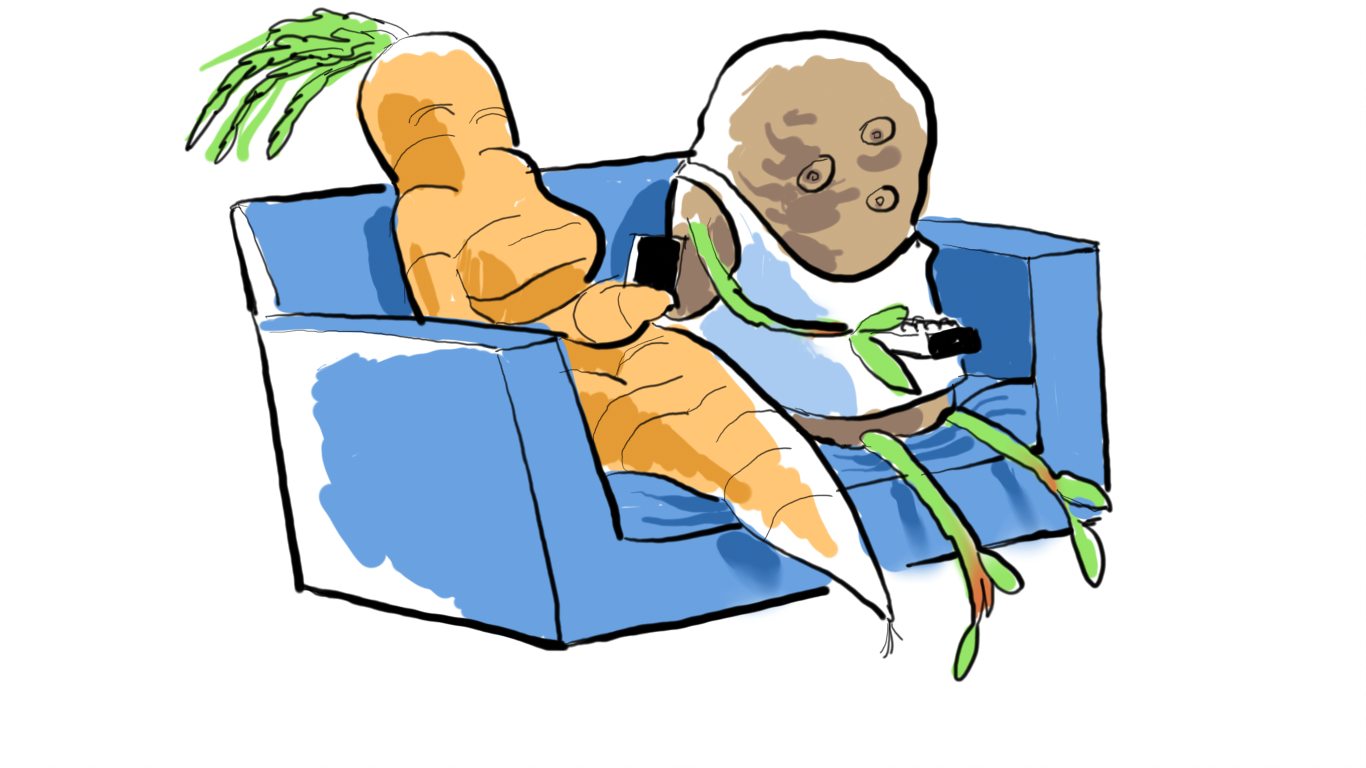When you don't have a lot of energy, do you ever veg out? To veg out is to relax with no intentions, like that spectacularly unambitious vegetable1 the couch potato.2
Veg out entered the language as early as 1979,3 although most sources seem to give credit to the 1990 film Pretty Woman in which Vivian Ward (Julia Roberts) suggests "we'll just veg out in front of the TV." Veg out is an emphatic version of veg. Since the 1920s, veg has been an abbreviation of the verb vegetate, meaning to spend time in a dull or inactive way. As far back as 1740, vegetate meant lead a dull or stagnant life.
When you veg out, you're calling on nearly 300 years of inactivity.
Someone who is truly inactive might be in a vegetative state, meaning mentally inert or exhibiting only the unconscious functions that allow basic life. Since 1893, vegetative has had the sense of brain dead.
However—there's always a however—before it meant stagnate, the word vegetate meant exactly the opposite: In the 1600s, vegetate meant to grow like a plant. In the 14th century, vegetative meant endowed with the power of growth. These words come from the Latin vegetare (to animate, make lively) and vegere (to be alive or active).
A couch potato is a couch potato, but if you veg out you might be doing more than you think.
The phrase couch potato was coined by Tom Iacino of Pasadena, California, on July 15, 1976. He was a member of a group devoted to vegetating in front of the boob tube (what we had before YouTube). They called themselves boob tubers. A potato is a tuber, so couch potato was a clever leap.
I found an example in The Coevolution Quarterly on Google Books.



